Search Images
Browse Content (p. 1692)
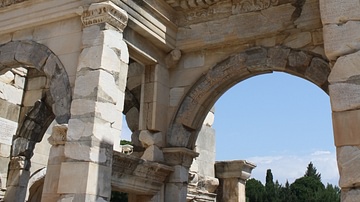
Image
Agora Gate, Ephesos
The Mazeus-Mithridates Gate, consisting of three arched entrances, led from the library of Celsus to the Roman Agora of Ephesos. It was built by and named after two emancipated slaves of emperor Augustus in 4 or 3 BCE, who dedicated the gate...
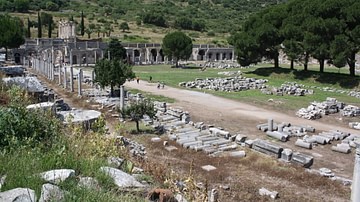
Image
Roman Agora, Ephesus
The Agora (or market place) of Ephesos was first built in the 3rd century BC but was adapted over the Roman period to reach its final form in the early 3rd century AD. On a square plan (111m x 111m) the Agora was accessible through three...

Image
Celsus Library Facade, Ephesos
A deatil of the facade of the library of Ephesos (c. 117 CE).
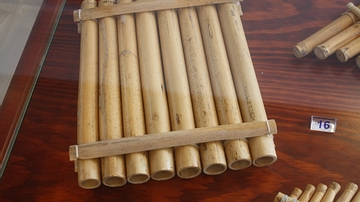
Image
Ancient Greek Panpipes
A modern reproduction of the most common form of panpipes played by the ancient Greeks (Museum of Ancient Greek Musical Instruments, Katakolon, Greece).
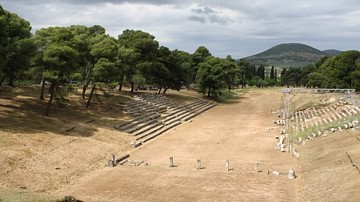
Image
Stadium of Epidaurus
The stadium (181 m long), built in the 4th century BCE, held athletic games every four years at the sanctuary of Asklepios, Epidaurus. Still visible are the starting pillars and a number of the stone benches for spectators.
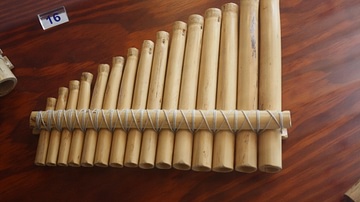
Image
Panpipes
A modern reconstruction of panpipes (or syrinx), first used by shepherds in the Cycladic islands as early as the third millennium BCE were a popular musical instrument in ancient Greek culture and are often depicted on Greek pottery. (Museum...
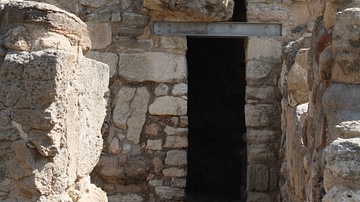
Image
Minoan Horns of Consecration
Bull horns were a common religious symbol in the Cretan Minoan culture (2000 BCE - 1450 BCE), represented in fresco, on pottery and as here from the palace of Knossos, in architectural stone decoration.

Image
Hephaistos / Vulcan
Vulcan. Marble, reception piece for the French Royal Academy, 1742. Guillaume II Coustou (1716-1777). Louvre Museum, Department of Sculptures, Richelieu, ground floor, room 25.

Image
Greek Double Aulos
The ancient Greek double aulos (diaulos) consisted of two pipes (auloi) attached at the mouthpiece and sometimes held in place with a leather strap (forveia) to the player's face. The pipes could be of equal length or unequal, the latter...
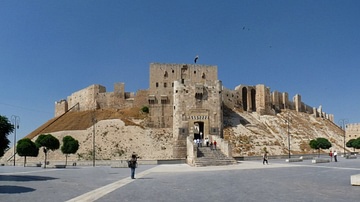
Image
Citadel of Aleppo
The Citadel of Aleppo (Arabic: قلعة حلب) is a large medieval fortified palace in the centre of the old city of Aleppo, northern Syria. It is considered to be one of the oldest and largest castles in the world. Usage of the Citadel hill dates...